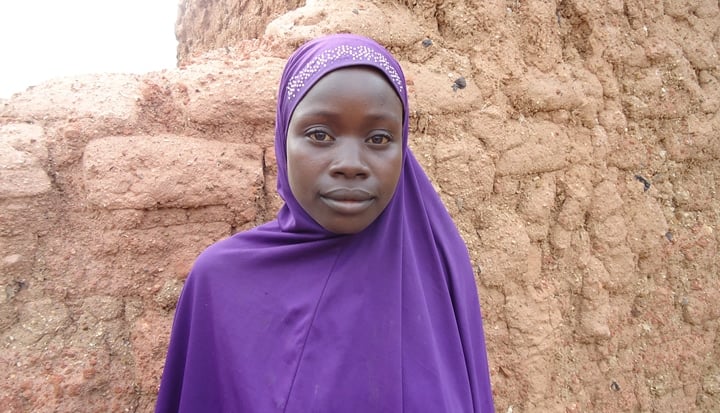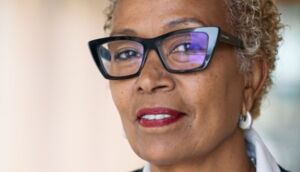Across the developing world, adolescent girls face the triple disadvantage of living in rural areas where education isn’t a priority; having limited power and access to resources; and being undervalued by their communities simply because they’re girls.
While there is recognition that investing in girls is key to fighting poverty, not many know just how much it matters. For example, if young Nigerian women had the same employment rate as young men, the country would add 8.8 billion GBP to the economy every year. If a country increases the number of girls who attend school by 10 percent, it can raise its GDP by three percent. An educated girl marries later, has fewer children, and is more likely to seek healthcare for herself and her children. Research shows that an educated mother invests at least ten times more income back into her family. And the gains go beyond family.
When we invest in girls, everybody wins. But while girls have the potential to change the world, they often don’t have the chance. One of the ways we can create more opportunities for girls is by developing innovative partnerships through the private sector – partnerships that recognise that adolescent girls are a very diverse group with diverse needs. Girls might be out-of-school, in-school, mothers, refugees, domestic workers or pastoralists.
As an international development agency working in over 40 countries, Mercy Corps supports girls to stay in school, make successful transitions to work, and access the networks they need to improve their status within their household and greater community.
One way we do this is by partnering with the private sector and communities to create shared value, which allows partners to accomplish goals together that neither one could achieve alone.
What this means is having a keen understanding of each partner’s interests, and determining how a partnership can ensure all those interests are met. For a private sector partner this might mean supporting objectives such as business expansion, improved operations, new product development, or engagement at different parts of a value chain. And for communities, this often means sustainable jobs, improved markets, access to financial services, or increased capacity to be successful entrepreneurs.
In order to establish a successful shared value partnership, it is necessary to understand the complexity and interconnectedness of communities and markets. We undertake market assessments to identify the constraints that hinder women and girls’ participation in market and that limit business success, and we build partnerships with all stakeholders and support technical training.
In Nigeria, Mercy Corps partners with The Coca-Cola Company and the UK Department for International Development (DFID) to equip adolescent girls and young women with the skills they need to finish secondary school and transition from school-to-work. We identified that there were key barriers for financial inclusion and entrepreneurship for this group of girls and the initiative supports girls to complete school through the creation of safe learning spaces and provides older adolescent girls, who never completed school, to participate in vocational training focused on business and employment readiness.
This partnership has been successful because it is business-led, multi-stakeholder, innovative, and transformative.
Business-led: The partnership supports The Coca-Cola Company’s 5by20 initiative to economically empower five million women in their global value chain by 2020. Coca-Cola understands that for women and girls to achieve economic success they require skills and knowledge, including financial and business training, followed by a clear path to gain, keep hold of, and make productive use of economic assets which will have a multiplier effect for economic growth and poverty reduction.
Multi-stakeholder: Engages business, government and civil society to build economic opportunities.
Innovative: Girls are supported to stay in school until they graduate and upon graduation will have the employability skills and access to mentors and networks to find safe employment.
Transformative: The partnership increases girls’ learning outcomes, enrollment and retention, and also supports interventions that maximise the wider health, economic, and social benefits of girls’ education.
Thousands of girls will participate in our partnership with Coca-Cola. Without this partnership, they would not have had the opportunity to pursue their own ambitions and aspirations. Without this partnership, where would they be now? Can shared value partnerships be a way of exploring innovative opportunities for advancing girls around the world? We believe so, and we have the evidence to prove it.
Mercy Corps supports the empowerment of women and girls across 40 countries around the globe.










